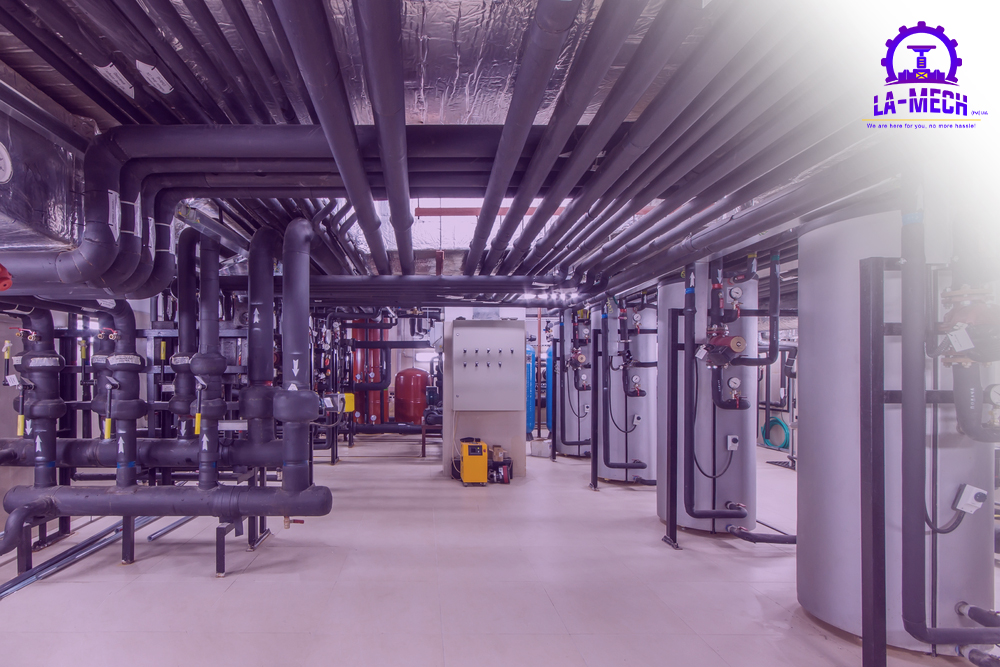Plumbing
Plumbing systems, commonly known as domestic hot and cold water service systems, convey water to fixtures and equipment through piping for various purposes in residential, commercial, and industrial buildings. Medical gases transported through piping also fall under the plumbing system umbrella.
The most important contributions that plumbing insulation can deliver for domestic hot and cold water piping and equipment systems are energy conservation, condensation control, personnel, and freeze protection.
Plumbing insulation, available in preformed tubes (pipes) and sheets and rolls (large pipes and equipment), can deliver energy savings to building owners, help equipment to operate at optimum levels of performance and reduce demand for fossil fuels over the life of the mechanical system.
There are many different types of plumbing insulation that excel in various applications. Due to a closed-cell structure, built-in vapor retarder, low thermal conductivity, flexible nature, and ease of installation, closed-cell elastomeric foam plumbing insulation is an excellent choice for conserving energy, controlling condensation, and freeze protection.

More About Plumbing
The correct plumbing insulation thickness is critical to preventing condensation, or “sweating”, on the insulation surface and preventing corrosion under insulation (CUI). Choosing plumbing insulation with the proper thermal conductivity (k-value) and thickness can effectively control condensation throughout daily fluctuations in system operating temperatures and seasonal ambient temperature and relative humidity.
The cost of uncontrolled condensation on cold water plumbing systems and the surrounding environment can be significant. Condensation can potentially reduce a pipe insulation’s thermal efficiency, catalyze corrosion to metallic piping and equipment and cause water damage to equipment and building systems below. Choosing the right plumbing insulation and thickness to constantly manage condensation can pay for itself by preventing costly repairs and replacement of insulation and parts of the plumbing system itself.
When excessive condensation develops on the plumbing insulation surface, the potential for mold development is real. Whether the excess moisture or vapor drive, permeates into and beneath the insulation or travels to areas below, mold development can result if food (i.e. dust) and water for microbes are present. The good news is that most plumbing insulation offers antimicrobial protection so at least mold cannot grow on the plumbing insulation surface.
When freeze protection is required for plumbing systems in unconditioned (mechanical room, basement, attic) and exterior spaces, insulation with the proper thermal k-value and thickness can prevent heat loss. When installed in exterior environments, plumbing insulation should be protected from solar radiation, moisture, and mechanical damage.
